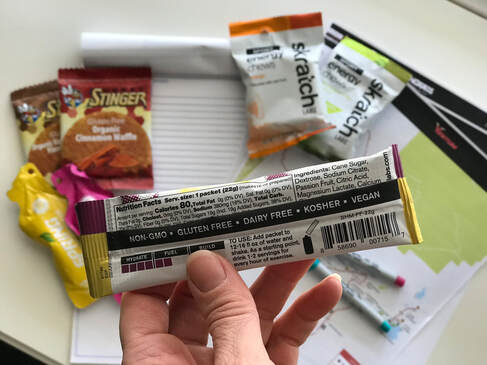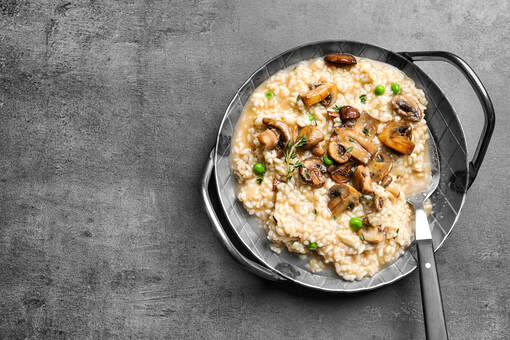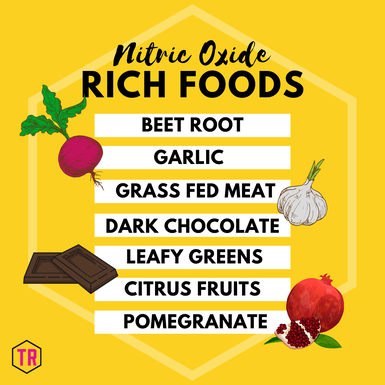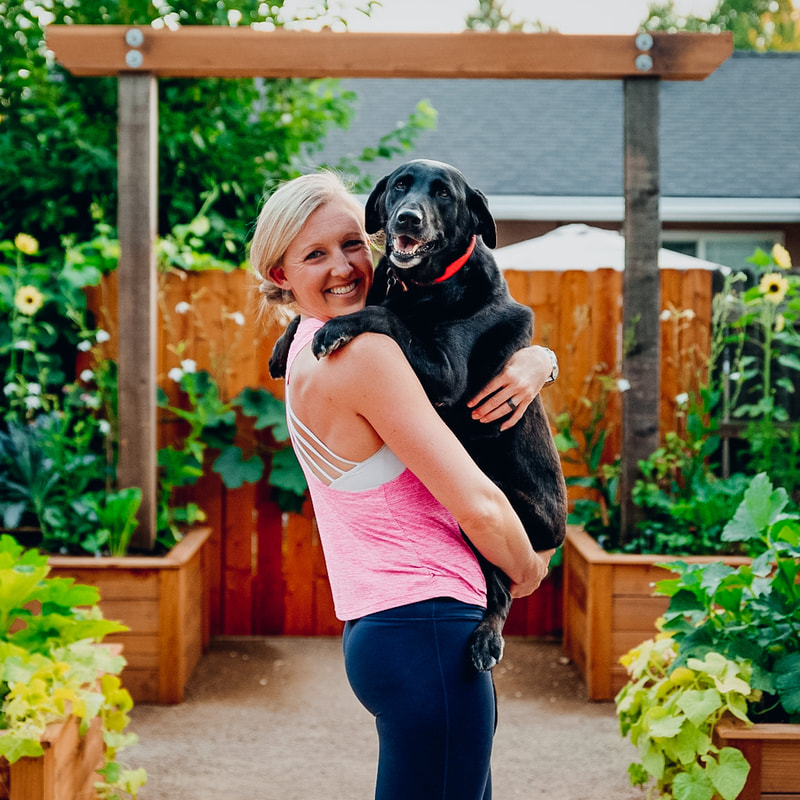|
Whew! We’re doing this! We’ve made it through a series of blog posts already that have covered how to build an annual nutrition plan and the finer details of the nutrition requirements for base training and a build phase of training. I am so excited to jump into the weeds today on the most exciting phase of all...race specific training and nutrition. It’s the most exciting because this phase encompasses the actual race itself! What’s not to be excited about that!?! Before we jump into exactly how you should be eating in this phase, let’s first discuss both the goals and the typical training in a race specific phase of training. WHAT ARE YOUR GOALS DURING THE RACE SPECIFIC TRAINING PHASE? During this time your main focus is on the following:
HOW LONG DOES THIS PHASE LAST? The race specific training phase typically starts anywhere from 4-8 weeks prior to your main event. This time frame depends on many things, including your experience in the sport at that specific distance, your prior training load, and how quickly your body responds and recovers from the stress that race pace efforts can create. Everybody is different. Some people respond and recover quickly. Where other athletes need more time to slowly build to these race efforts, and require more time to recover as well. It’s important you listen to your body and work closely with your coach to find out what the right amount of time is for you! If you are training for a race without a coach and feel like you need some guidance on this, reach out to me! I’m happy to set up a free discovery call to help you fine tune your taper. The race specific training phase is building on the previous training phases before it, both base training and build training. In those phases, we have built up our endurance engine to be able to handle a larger amount of volume. Once we are nearing our key event, we transition to the race specific phase of training and begin to get more specific to the demands we will face during our event. Workouts will likely include race day efforts with short periods of rest between sets. This is also the training phase where athletes can and should consider other stressors they may encounter on race day and prepare for them. An example of this is temperature. If you are planning to race in a hot and humid environment, doing some heat training, or regular sauna sessions leading into your event can help your body be more prepared for that stressor. OKAY, NOW ONTO THE FOOD! From a training nutrition perspective, during the race specific phase, you are mostly executing the plan you developed during your build phase. In that phase, you tested multiple types of nutrition to discover what works and what doesn’t. You also tested how much is too much, and how much is too little. Now you know which foods you can tolerate, and in what amounts. In the race specific phase, it’s all about practicing. There should be no new food introductions or tests done! Come race day, your food should be the least stressful part! This is because, if you follow the suggestions I’ve laid out for you for training, you will know your nutrition plan like the back of your hand. That way, as other things arise (which they will), you have the mental space to manage those without faulting on your nutrition plan. So don’t change much now, just make sure you have what you need in place to spend these few weeks before the race practicing your plan. PRE-RACE MEALS The main difference from a training nutrition perspective in the race specific phase is your need to practice your pre-race meals. Many training programs call for race style simulation training days. One of these days, you can and SHOULD also be testing your nutrition exactly as you have it planned out for race day. This means you practice your pre-race meals too! So what would this look like? The night before your biggest training day, you consume your planned pre-race dinner and then go to bed early. Wake up at your planned wake up time for race day. Eat the breakfast you plan to eat on race morning. Drink all the things you plan to drink race morning, and then start your race simulation training day at the same time you would start your race. Over the years, I have found 2 main pre-race meals for the night before the race that work best for me:
If I have access to a kitchen, I will almost always make the risotto! Yes, risotto is made from rice which might be surprising for you. But I have tested how my body responds to rice and it does great every time. The homemade bone broth in the risotto is rich in minerals and L-Glutamine (the most abundant amino acid in our muscles). And I always make enough to eat for breakfast on race morning. I usually dilute the race morning portion with extra bone broth and eat it more like a soup. I love it. Do you have to do it exactly as I do? Absolutely not! You need to find what works for you! Maybe it’s chicken risotto. Maybe it’s salmon and potatoes. You won’t know unless you test and testing happens during the build phase. Whatever it is, you want to find something that you enjoy and satisfies you but doesn’t spike your blood sugar, causing you to wake up in the middle of the night hungry. I typically eat a small breakfast on race morning about 3 hours prior to race start. This is either leftover chicken risotto soup, or gluten free bread with almond butter, or a smoothie with sweet potato, coconut milk and a clean protein powder (link Equip Prime Protein HERE). IN THE KITCHEN One thing to note is that while WHAT you eat should stay mostly the same, there will be slight variation in quantity as you get closer to your event. As your intensity and volume decreases, so does your caloric need. BUT THIS DOESN’T MEAN YOU GO ON A DIET! You still need to eat enough calories to sustain your energy expenditure. Instead, be mindful of your activity levels and meals. If you have rest days, you may not need to be loading up on starchy carbs on those days. You also may be able to cut your caloric intake down by a few hundred calories per day. This might look as simple as eliminating a snack between meals, or cutting your portions down slightly at each meal. Nothing major! If your early morning training session is easy, you may be able to do this fasted again (like you did in the base phase). The key here is to listen and watch your body. The last thing an endurance athlete wants to do is put on weight in the weeks leading into an event. So if your clothes start fitting more tightly, be aware and make slow and purposeful shifts to your diet to maintain energy and body composition. THE IMPORTANCE OF NUTRIENT DENSE, REAL FOOD MEALS (INCLUDING CARBS!) On the flip side, you also don’t want to be malnourished coming into your key event of the year. So keep up with regular meals that are built with nutrient dense whole foods and avoid snacking on foods that are void of micronutrients. If you love tracking macros, I highly advise you to continue to eat your calories in a 40% carb, 35% fat and 25% protein ratio. Even though you will be cutting your training volume and intensity 1-2 weeks before your main event, there is recent research that shows that the gut is trainable. And since we will be consuming mostly carbohydrate during our race, we need our gut to be capable of uptaking those carbs when we need it. One study showed that exogenous carbohydrate oxidation rates (i.e., how quickly our body metabolizes carbohydrates that we eat) were higher after consuming a high-carbohydrate diet for 28 days compared with a low-carbohydrate diet. This tells us that if we eat carbohydrates for a period of time, our body is better able to utilize them. Thus providing evidence that the gut is indeed adaptable and this can be a useful tool to prepare the gut for the reality of increased carbohydrate consumption on race day. So, although our training may not dictate the need for high carbohydrates in the week or two leading into a key event, making sure that the gut is adapted to absorb the carbohydrates on race day is still needed. Therefore keeping your carbohydrate intake around 40% of your caloric intake, and instead decreasing your caloric intake to match your energy expenditure is advised in the weeks leading into an event. “NEVER TRY ANYTHING NEW ON RACE DAY” There are certain types of foods that you can place a greater focus on that can support race phase training, allowing you to arrive on race day as ready as you can be. Foods high in nitric oxide:Nitric oxide is the nutrient required to help open up blood vessels and carry oxygen through the body to the muscles! Some great options: beet root, garlic, grass-fed meat, dark chocolate, leafy greens, citrus fruits, and pomegranates! Foods high in L-glutamine: L-glutamine is an amino acid (ie., a building block for proteins). It is great for immune system function and supports gut health! Some great options: bone broth, meats, fish, dairy (if you can handle it), eggs, beans, beets, cabbage, spinach, carrots, and kale. Foods high in fiber: specifically, I’m talking about cooked vegetables, like leafy greens, as they are typically easier on the digestive system. Fiber is fantastic for keeping your gut healthy and supports overall health! Caffeine: just stick to coffee here! Test this on your longer workouts and enjoy some on race morning. Caffeine is a natural stimulant that has been proven to help with cognitive function and sharpness! Additionally, in a race specific build, it is more important than ever to make sure you are prioritizing sleep and proper hydration. These 2 factors can help keep your immune system stay strong as you taper into your main event. IT’S RACE TIME!
By the time you hit this point of your training, most of the work has been done. Not only have you built up your training, but you have also tested multiple aspects of your nutrition strategy and now you get to just practice, practice, practice! The time you spent planning out your nutrition and training in the prior phases can now be spent planning out the finer details for your race weekend. And sleeping. Did I mention that this is a great time to sleep more. ;) Congratulate yourself for getting through your pre-season, base training and build training to get here. Getting to the start line healthy and ready to race is a HUGE testament to how well you planned and executed your training and nutrition strategies. And if you are reading this as you are getting ready for your training season and feeling overwhelmed, then you may need some support and guidance. Especially if this is one of your first races where you are taking your training nutrition seriously! If you are curious how I can help you, we can hop on a discovery call where I can answer any questions you have and tell you all about how I work with clients to help them get results. If we feel like we are the right fit for each other, then we can get started on your plan right away!
1 Comment
|
AuthorTiana Rockwell is a certified nutritional therapist, avid endurance athlete and dark chocolate lover. She believes that by eating REAL food, we can balance our body and reach optimal health and wellness! Archives
May 2022
Categories
All
|








 RSS Feed
RSS Feed